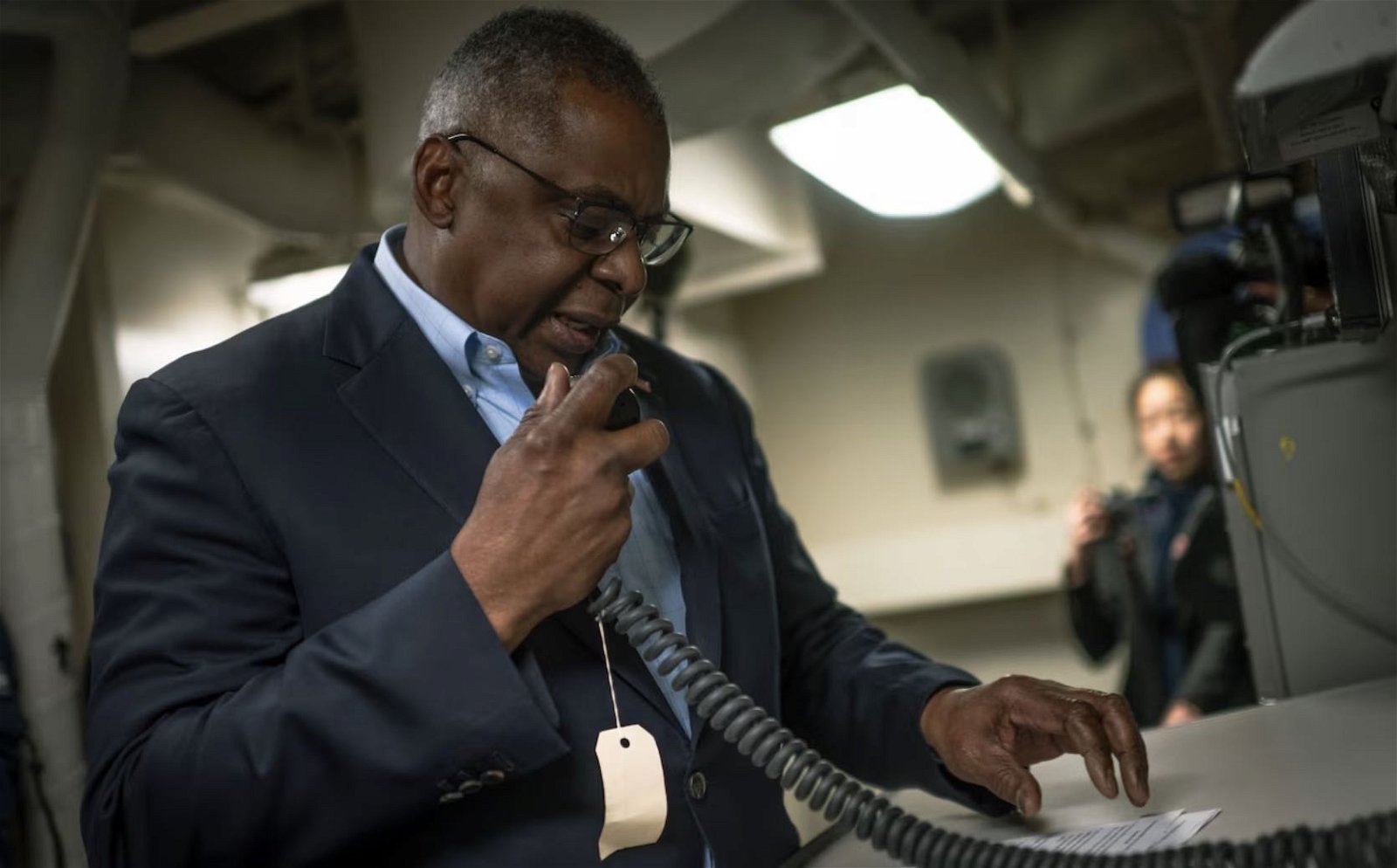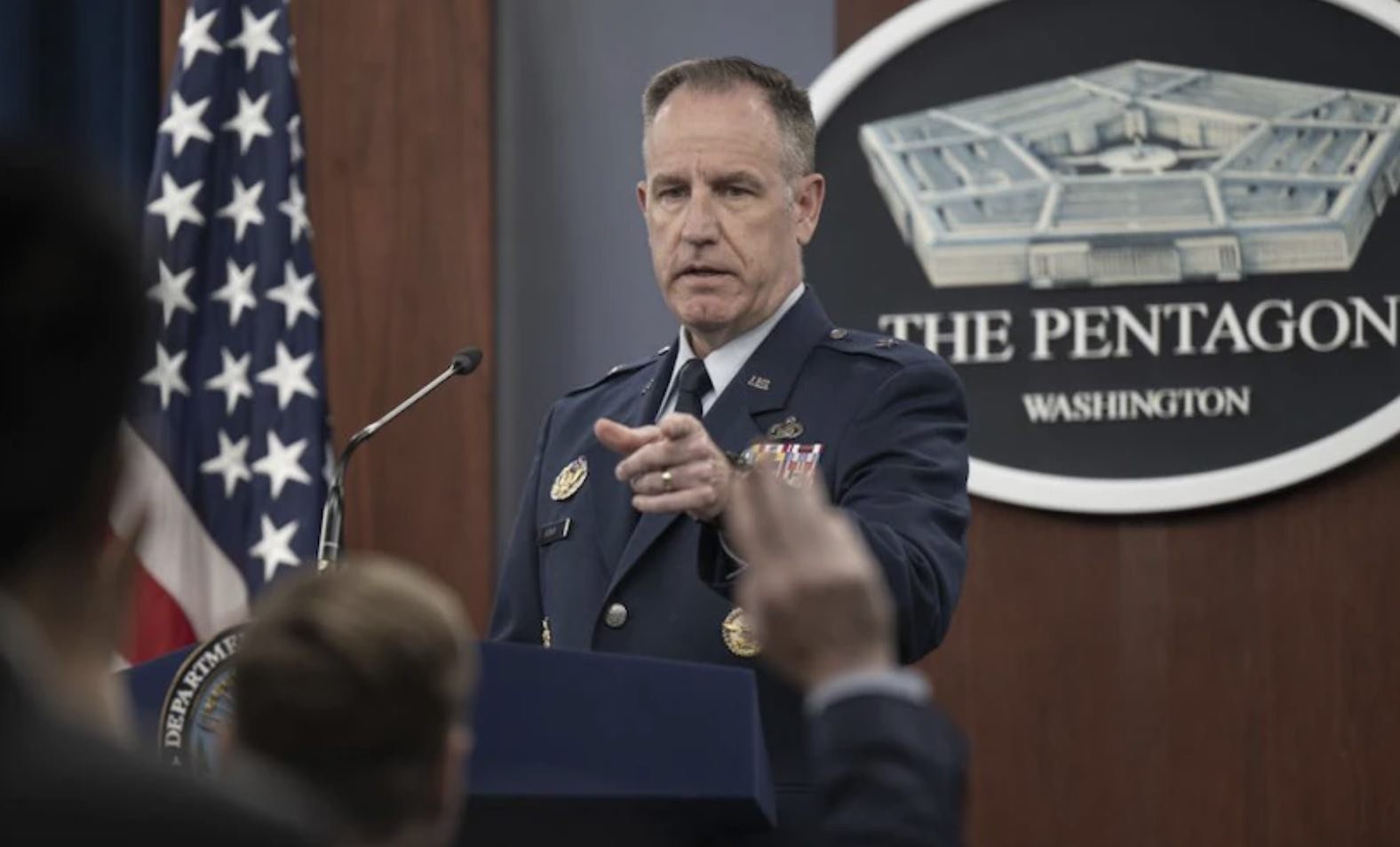

Welcome to this week’s installment of The Intelligence Brief… now that details about Secretary of Defense Lloyd J. Austin III’s recent “medical mystery” have finally come to light, our analysis this week will be looking at 1) the events leading up to the Defense Secretary’s hospitalization, 2) how top officials, and even the President, were kept in the dark for days, and 3) what this situation illustrates about current issues with government transparency.
Quote of the Week
“I want to underscore again that Secretary Austin has taken responsibility for the issues with transparency and the department is taking immediate steps to improve our notification procedures.”
– Pentagon Press Secretary Air Force Maj. Gen. Pat Ryder
Latest News: In recent coverage from The Debrief, a new bipartisan bill, the Safe Airspace for Americans Act, has been introduced to encourage reporting of sightings of unidentified anomalous phenomena (UAP). Elsewhere, a recent study used thermal demagnetization to potentially verify an ancient biblical account. You’ll find links to all our recent stories and other items at the end of this newsletter.
Podcasts: In podcasts from The Debrief, on The Debrief Weekly Report, MJ, Steph, and Kenna Castleberry discuss “laser scarecrows,” a new breakthrough in hypnosis, and more. Meanwhile, this week on The Micah Hanks Program, we feature an in-depth discussion with philosopher Bernardo Kastrup on whether UAP might have an earthly origin. You can get all of The Debrief’s podcasts by heading over to our Podcasts Page.
Video News: In the latest installment of Rebelliously Curious, Chrissy Newton is joined by Paul Root Wolpe as they delve into the world of genetic engineering and the fascinating intersection of science, ethics, and the future of life. Also, check out the latest episode of Ask Dr. Chance and all the other great content from The Debrief on our official YouTube Channel.
With that all behind us, it’s time we look at events of recent days and the odd circumstances that, for a time, kept the President and top U.S. officials in the dark about the condition of the Secretary of Defense.
A Medical Mystery
On December 30, an official Department of Defense (DoD) release was issued with a brief recap of a call between Secretary of Defense Lloyd J. Austin III and Netherlands Minister of Defence Kajsa Ollongren.
“Secretary of Defense Lloyd J. Austin III spoke with his counterpart, Minister of Defence of the Netherlands Kajsa Ollongren to discuss the ongoing illegal Houthi attacks on international shipping in the Red Sea,” read a portion of the release.
However, few were aware at the time that, despite the innocuous appearance of operations at the Pentagon, a concerning situation had been slowly unfolding behind the scenes.


Several days later, and well into the new year on January 5, the Pentagon released a statement from Pentagon Press Secretary Maj. Gen. Pat Ryder with an update regarding Defense Secretary Austin.
“On the evening of January 1, Secretary of Defense Lloyd J. Austin III was admitted to Walter Reed National Military Medical Center for complications following a recent elective medical procedure,” read Ryder’s statement. Offering no details on the procedure or Austin’s condition other than that he was “recovering well” and would resume duties that day, Ryder affirmed that Deputy Secretary of Defense Kathleen Hicks had been “prepared to act for and exercise the powers of the Secretary, if required.”
Lack of Communication
The following day, on January 6, the DoD released another update, this time directly from Austin.
“I am very glad to be on the mend and look forward to returning to the Pentagon soon,” Austin said, saying he understood “the media concerns about transparency and I recognize I could have done a better job ensuring the public was appropriately informed.”
“I commit to doing better,” Austin said, though emphasizing that “this was my medical procedure, and I take full responsibility for my decisions about disclosure.” However, in the ensuing days, concerns began to mount over the incident as it was revealed that, while temporarily assuming Austin’s duties, the Deputy Secretary of Defense had not been fully informed about Austin’s whereabouts for several days, and that President Joe Biden and other officials had also been kept in the dark about the situation.
Even after the concerning situation began to receive significant media attention, the Pentagon remained vague, at best, about the reasons for Austin’s hospitalization. During an off-camera press briefing, Ryder provided a timeline of events leading up to Austin’s hospitalization, although still provided no specifics on the “elective procedure” that had rendered him temporarily incapable of assuming his duties.
Austin’s Condition is Finally Revealed
Finally, on January 9, during a Pentagon press briefing, Ryder shared a statement provided by Dr. John Maddox, trauma medical director, and Dr. Gregory Chesnut, Center for Prostate Disease Research of the Murtha Center, director at Walter Reed National Military Medical Center in Bethesda, Maryland, which revealed the cause of the hospitalization.


“As part of Secretary Austin’s routinely-recommended health screening, he has undergone regular prostate-specific antigen (PSA) surveillance,” the statement read. “Changes in his laboratory evaluation in early December of 2023 identified prostate cancer, which required treatment.” Austin’s prostate cancer was reportedly detected early, “and his prognosis is excellent,” according to his doctors.
However, Austin was readmitted following discomfort following the initial procedure. As of the Pentagon’s most recent update on Wednesday afternoon, the Secretary of Defense “remains hospitalized at Walter Reed National Military Medical Center and is in good condition.”
From his current location at Walter Reed, Austin reportedly remains “in contact with his senior staff and has full access to required secure communications capabilities and continues to monitor DOD’s day-to-day operations worldwide,” Ryder said yesterday. However, many have understandably expressed concerns over the situation: one where top officials, and even the President, went for three days before finally learning what had been taking place quietly behind the scenes.
Austin’s situation is understandably complicated. A recent USA Today report argued that “men commonly struggle with sharing weaknesses, in part, due to our culture’s view of masculinity, even when it comes to important health matters.” On the one hand, having to share details about a very private health condition could indeed be viewed by some as a display of weakness, although a more likely explanation in Austin’s case is simply that after undergoing the initial procedure, he probably had not expected complications that would lead to a longer hospitalization.


Still, once it was evident that he would be temporarily unable to execute his duties, the nature of the situation changed, and no one—including Austin, in light of his commitments to doing better going forward—seems to dispute this.
“Nothing is more important to the secretary of defense and the Department of Defense than the trust and confidence of the American people and the public we serve and we’ll continue to work hard every day to earn and deserve that trust,” Ryder said in a statement issued yesterday.
It is indeed fortunate that Austin’s condition is not more severe, and that he appears to be steadily improving. However, the situation that unfolded over the last week clearly shows another area where the Pentagon obviously has work to do in terms of making sure they “earn and deserve” the trust of the American public.
That concludes this week’s installment of The Intelligence Brief. You can read past editions of The Intelligence Brief at our website, or if you found this installment online, don’t forget to subscribe and get future email editions from us here. Also, if you have a tip or other information you’d like to send along directly to me, you can email me at micah [@] thedebrief [dot] org, or Tweet at me @MicahHanks.


Here are the top stories we’re covering right now…
- James Webb Space Telescope Detects Anomalous Emissions Coming from Mysterious Isolated Space Object
In an unexpected discovery, the James Webb Space Telescope has detected a distant brown dwarf that appears to be producing infrared emissions from methane.
- What We Know About the ‘Anomaly’ That Prematurely Ended the Peregrine Moon Lander Mission Carrying Human Remains
An anomaly brought the first attempted soft landing of a spacecraft on the Moon in more than 50 years to a premature end yesterday.
- Data Solutions Provider TELUS International is Paying $50 for Images of Kids to Train Google’s AI
Google and TELUS International have collaborated to collect biometric data from children for age verification purposes to train their facial recognition software.
- The Cosmic Race Between Stars and Black Holes
Supermassive black holes and stars initially competed for gas in the early universe, influencing the likelihood of life and the cosmic balance of energy.
- Vulcan Centaur Rocket Launch Positions ULA as Newest Challenge to Space X Amid Payload Controversy
The inaugural launch of ULA’s Vulcan Centaur rocket on Monday marked a new milestone in the growing commercial space industry.
- Scientists Have Solved This Anti-Gravity Mystery While Confirming New Form of Magnetic Levitation
Scientists solve anti-gravity mysteries that challenge classical physics and potentially transform magnetic levitation technologies.
- UAPs and Non-Human Intelligence: What Is the Most Reasonable Scenario?
Philosopher and computer scientist Bernardo Kastrup, Ph.D., presents a thought-provoking argument for the terrestrial origins of unidentified anomalous phenomena (UAP).
- NASA Satellite Images Have Revealed Something Curious in the Skies Above Russia’s Eastern Coast
NASA satellite images obtained late last year captured an unusual occurrence in the skies off the coast of eastern Russia.
- NASA Will Debut Its Mysterious X-59 ‘Quiet’ Supersonic Aircraft at Famous Lockheed Martin Skunk Works Facility Next Week
NASA has announced its plans to unveil its ultra-quiet X-59 supersonic aircraft next week, the American space agency said in a statement on Friday.
- “Synthetically-Generated Genomically Targeted Plagues” Will Be the Future of Warfare, says New Defense Report
In a new report, researchers explored the potential for engineered pathogens to become instruments of warfare.
- The Epstein File: What We Know About This Week’s Document Release
In this first installment of 2024, we look at the first batch in a series of U.S. court records detailing people associated with Jeffrey Epstein that were released on Wednesday
- Half Billion-Year-Old ‘Giant’ Predator is Unearthed During Expedition to Greenland High-Arctic Zone
Scientists have discovered a new variety of animal predators, whose ancient remains were recently unearthed during expeditions to a remote North Greenland high-Arctic zone.
- Stanford Researchers Successfully Alter Hypnotizability Using Electrical Brain Stimulation
Stanford researchers show that a person’s hypnotizability can be changed, at least temporarily, using targeted electrical brain stimulation.
- DARPA Research Leads to Groundbreaking Discovery in Quantum Computing, Developing the World’s First Logical Qubit Circuit
Harvard and DARPA create the first circuit with logical qubits, revolutionizing quantum computing possibilities.
- ‘Laser Scarecrows’ Are a 21st-Century Solution to an Ancient Problem
Scientist from the University of Florida have created laser scarecrows, offering a 21st-century solution to an ancient problem.
